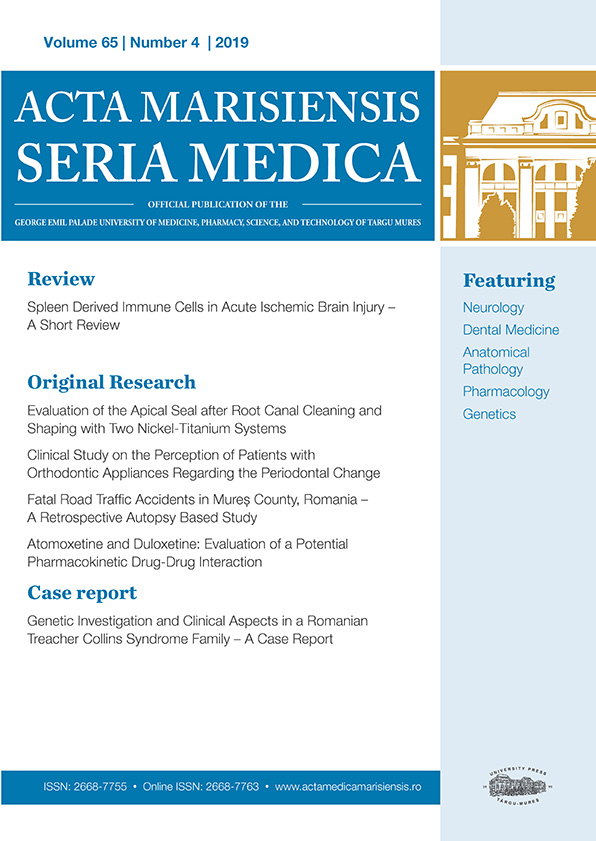Prosthetic Management of Acquired Dentate Maxillectomy Defects: A Clinical Case Series
DOI:
https://doi.org/10.2478/amma-2022-0009Keywords:
Surgical Obturator, Interim Obturator, Definitive Obturator, Dentate maxillectomy, ObturatorAbstract
Acquired maxillectomy defects produce hypernasal speech, food, and liquid regurgitation into the nasal cavity, impaired deglutition and mastication, and cosmetic deformity. Furthermore, patients with acquired maxillary defects face psychosocial stigma, which has a negative impact on their quality of life. Prosthetic rehabilitation of such defects is required for stomatognathic system restoration and oroantral communication obturation. This case series discusses the fabrication of surgical, interim, and definitive obturator prostheses to restore the acquired dentate maxillectomy defects of three cancer patients. All patients had their treatment in the prosthodontics department of the RUHS College of Dental Sciences. The surgical obturator prosthesis was made before surgery, whereas the interim and definitive obturators were made one month and six months after surgery, respectively. The surgical obturator formed a shield between the surgical pack and the oral cavity. After the surgical obturator and packing were removed, an interim obturator was inserted for three to six months to allow the surgical site to heal. After the surgical site had healed, the fabrication of the definitive obturator began. Prosthetic rehabilitation with obturator prostheses sealed the acquired tissue defects of the palate and restored swallowing, speaking, chewing capacity, and cosmetic value, as well as significantly improved the quality of life of these patients.
Downloads
Published
How to Cite
Issue
Section
License
Acta Marisiensis Seria Medica provides immediate open access to its content under the Creative Commons BY 4.0 license.









